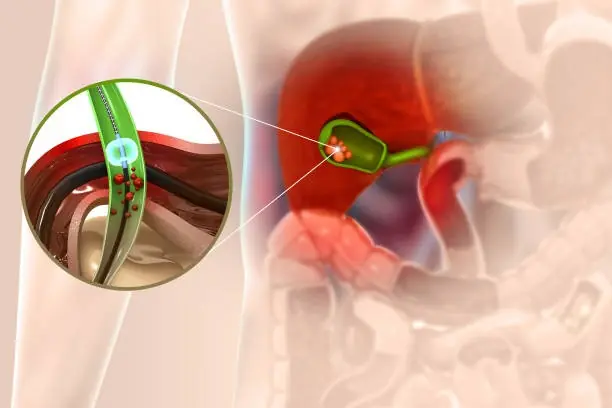
1 tablespoon a day: prevents blood clots, stroke and heart attack
Overview of Flaxseed
Flaxseed, also known as linseed, may be small in size, but it packs a powerful nutritional punch. Despite its diminutive appearance, flaxseed is a nutrient-dense food that can have a profound effect on your health. Just a single tablespoon of flaxseed each day is enough to make a significant impact on your well-being. Among its many health benefits, flaxseed is especially renowned for its ability to reduce the risk of blood clots, heart attacks, and strokes. Let’s explore the numerous advantages this humble seed can provide.
Rich in Omega-3 Fatty Acids
One of the most remarkable features of flaxseed is its high concentration of omega-3 fatty acids. These essential fats are widely recognized for their heart-healthy benefits. Omega-3 fatty acids are known to reduce triglyceride levels in the blood, lower inflammation within the body, and help maintain healthy blood pressure levels. As a result, they play a crucial role in preventing the formation of blood clots, which can lead to life-threatening conditions such as heart attacks and strokes.
Incorporating flaxseed into your daily routine can be a simple yet effective way to support your cardiovascular health. Omega-3 fatty acids are also known for their role in promoting overall brain health, enhancing mood, and supporting healthy skin. Thus, flaxseed’s omega-3 content provides both heart and mind benefits.
High in Dietary Fiber
Flaxseed is an excellent source of both soluble and insoluble dietary fiber. Soluble fiber helps to bind to bile acids in the digestive system, allowing them to be excreted from the body. This process helps to lower cholesterol levels, which can, in turn, reduce the risk of developing heart disease. Lowering blood cholesterol is a key factor in maintaining healthy arteries and avoiding conditions such as atherosclerosis.
In addition to its soluble fiber, flaxseed contains a high amount of insoluble fiber, which promotes regular bowel movements and helps prevent constipation. By maintaining a healthy digestive system, flaxseed plays a role in overall gastrointestinal health, preventing discomfort and contributing to better digestion. Together, these fiber types contribute to improved heart health and more efficient digestion.
A Powerful Antioxidant Source
Flaxseed is also packed with lignans, a specific class of antioxidants that offer significant heart-protective benefits. These antioxidants play an important role in preventing the development of atherosclerosis—a condition in which plaque builds up in the arteries, narrowing them and increasing the risk of heart attacks and strokes. The lignans in flaxseed help to reduce oxidative stress and protect the cardiovascular system by neutralizing harmful free radicals that can damage cells and tissues.
Beyond their cardiovascular protection, lignans also have potential anticancer and anti-inflammatory properties, which can contribute to overall health and longevity. With flaxseed’s potent antioxidant content, this tiny seed becomes a powerhouse of protection for your vascular health.
Easy Ways to Add Flaxseed to Your Diet
Incorporating flaxseed into your daily routine is both simple and versatile. Ground flaxseed is easier for your body to digest and absorb, making it the preferred option over whole seeds. You can easily add ground flaxseed to your morning routine by mixing it into yogurt, smoothies, or cereal. It can also be used in baking, such as in muffins, bread, or pancakes, to boost the nutritional value of your favorite recipes.
If you’re looking for even more creative ways to enjoy flaxseed, consider adding it to your salads, smoothies, or even blending it into soups and stews. The possibilities are endless, and it only takes a small amount—just a tablespoon—each day to reap the maximum benefits.
In Summary
Incorporating just a single tablespoon of flaxseed into your diet each day can provide impressive benefits for your heart health. This tiny seed is a rich source of omega-3 fatty acids, fiber, and antioxidants, all of which work together to lower the risk of heart disease, prevent blood clots, and support overall vascular health. Adding flaxseed to your daily diet is an easy and effective way to improve your heart health and protect your body from potentially life-threatening conditions such as strokes and heart attacks.
Don’t wait to start reaping the benefits of flaxseed. By making this simple dietary change, you can significantly enhance your overall well-being. Enjoy the many health advantages of flaxseed and take a step toward better heart health today!
News in the same category


Preventing Nighttime Leg Cramps: Causes and Solutions

3 Phrases Narcissists Commonly Use, According to a Psychologist

Man Goes Viral Due to Severe Head Lice Infestation

Discover the Healthiest Fruit on the Planet: What Happens When You Eat Dates

6 Warning Signs That You’re Not Getting Enough Vitamin D

7 Warning Signs of Liver Damage You Shouldn’t Ignore

Chewing Gum Releases Microplastics Into Saliva – Even Natural Gums Are Not Safe, Study Finds

STUDY SHOWS SWITCHING TO PERSONAL CARE PRODUCTS WITHOUT CERTIAN PRESERVATIVES TURNS BREAST CANCER GENES OFF IN 28 DAYS

Study finds that eating one common 'superfood' could cut Alzheimer's disease risk by almost 50%

Side Effects and Dietary Recommendations Post Gallbladder Surgery

Signs You May Be Living With High-Functioning Anxiety

How to Know if You Have Fibromyalgia + 8 Natural Approaches to Relieve

Dark eye circles might be a subtle health warning

Could This 3D-Printed ‘Electronic Glove’ Keep Your Heart Beating Forever?

The Amount Of Time You Spend Peeing Could Be A Warning Sign For Bigger Health Issues

Scientists may have finally developed pill to cure deadly disease with 90% mortality rate

Man Shares His 'Proof' of Life After Death and the Seven 'Stages' of the Afterlife

Dental Expert Reveals the Top Two Brushing Mistakes That Lead to Yellow Teeth

They Hid This From Seniors: It Unclogs Arteries INSTANTLY!
News Post

Age Spots: Causes, Prevention, and Effective Treatments

Preventing Nighttime Leg Cramps: Causes and Solutions

3 Phrases Narcissists Commonly Use, According to a Psychologist

Man Goes Viral Due to Severe Head Lice Infestation

Discover the Healthiest Fruit on the Planet: What Happens When You Eat Dates

6 Warning Signs That You’re Not Getting Enough Vitamin D

Sons Abandon Old Mom in Nursing Care & Sell Her House, New Owner Returns Her Home Keys Later – Story of the Day
Blinded by greed and love for money, an elderly widow's sons kicked her out of her own house, sold it, and sent her to a nursing home. A few days later, the new homeowner returned her home keys with a heartwarming note that made her hug him and cry.

5 Powerful Leaves That Boost Eye Health Naturally

7 Warning Signs of Liver Damage You Shouldn’t Ignore

Chewing Gum Releases Microplastics Into Saliva – Even Natural Gums Are Not Safe, Study Finds

STUDY SHOWS SWITCHING TO PERSONAL CARE PRODUCTS WITHOUT CERTIAN PRESERVATIVES TURNS BREAST CANCER GENES OFF IN 28 DAYS

Study finds that eating one common 'superfood' could cut Alzheimer's disease risk by almost 50%

I Became a Burden to My Father after I Lost the Ability to Walk

I Was Stunned When the Teacher Said All the Kids Talked about How Amazing My Husband Was on Father's Day, I'm a Widow

Side Effects and Dietary Recommendations Post Gallbladder Surgery

I Bought a Vintage Blazer at a Thrift Store for My Mom, But the Note Inside Revealed a Secret She Kept for 40 Years

Signs You May Be Living With High-Functioning Anxiety

How to Know if You Have Fibromyalgia + 8 Natural Approaches to Relieve

Dark eye circles might be a subtle health warning

